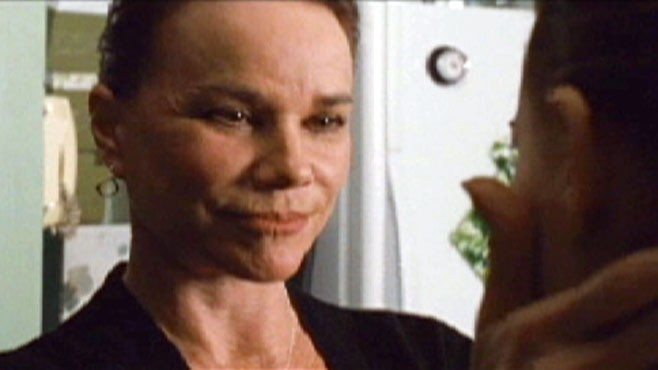A couple months ago I began a series inspired by Amy Chua’s “Why Chinese Mothers Are Superior.” Although her column was less nuanced than her book, the column was a cultural event in itself — it’s now been shared over 362,000 times on Facebook — and it deserved a response. It also provided an opportunity to explore the strengths and weaknesses of stereotypically “eastern” and “western” styles of parenting. Raised by thoughtful Caucasian-American parents, but joined by marriage and ministry to Asian-American families, it seemed to me that each had much to learn from the other.
I wrote the first three parts of the series (see here, here and here) but could not find an inspiring way to finish it — until I saw Black Swan. If you can excuse the rude clash of animal metaphors: the danger for Tiger Parents is that they will raise Black Swans. This will take some explaining, but there are lessons to be learned from Darren Aronofsky’s brilliant film for all parents, whatever their genus and species. What do we really want for our children: Perfect technical execution, or creative transcendence? Lives of mechanical achievement, or of rich passions and personalities? Do we encourage a healthy growth into sociality and sexuality, or stamp them out in order to focus our children on their professional pursuits? To what extent are our children liberated by our stories, and to what extent are they haunted by our own unfulfilled dreams? And when does the striving for perfection and achievement become less a vision that inspires a joyful labor than a Law that enslaves and drives us to self-loathing?

Black Swan stars Natalie Portman as Nina Sayers, a member of a New York City ballet company; Barbara Hershey as her mother, a former dancer who never escaped the corps de ballet, and whose career ended when the artistic director got her pregnant with Nina; Mila Kunis as Lily, a new member of the company from San Francisco (of course) who delights in sexuality and transgressing boundaries; and Vincent Cassel as the ballet’s present artistic director, Thomas Leroy, who wishes that Nina were more like Lily. It’s not a pleasant movie to watch. The tension that surrounds Nina and the crumbling of her sanity sucks the air out of the theater. And be forewarned: the film is aggressively sexual; while there is no nudity, there are racy scenes. Yet the film is rich with moral and religious themes, more than any film I’ve seen in a long time.
Consider Nina, and consider whether you know any girls like her (even if not so extreme). The knowledge that her mother never achieved her dreams – and the pervasive anxiety that the same will be true of her – weighs heavily on Nina’s shoulders. Although she was old enough that she should have escaped the corps long since, Nina’s mother has chosen to believe that she sacrificed her career and whatever heights it might have reached in order to have Nina. This has compelled her to arrange and control meticulously every aspect of Nina’s life. Nina is shown with no friends, no hobbies, no delights, nothing in her life that is not fixed firmly on the goal of becoming the prima ballerina. She is an artifact in the museum of her mother’s resentment, exquisitely curated in the isolation-chamber of her mother’s apartment, in a frilly pink room fit for a ten-year-old, and in a state of perpetual mental childhood. She is less like a living human being, with vivid pleasures and passions, deep faith and friendships, than like the mechanical dancer that twirls in perfect position atop her dresser.

That is precisely what she strives for: flawless perfection, to do everything precisely right, without fault or blemish. The lead role in Swan Lake plays both the Swan Queen, who is all spotless innocence, and the Black Swan, who is all subversive seduction. When the artistic director (Leroy) first considers her for the role, he says that she is the ideal Swan Queen. She is “beautiful, fearful, fragile: ideal casting.” But the Black Swan cannot be “obsessed with getting every single move right.” The Black Swan is more primitive, more given to uncontrolled Dionysian urges and to sudden bursts of alluring flight.
Nina responds, “I want to be perfect.” Leroy counters, “Perfection is not just about control. It’s also about letting go.” It’s about “transcendence,” but “very few have it in them.”
The pursuit of perfection is slowly draining the life and sanity out of Nina. [Spoiler alert.] In striving to become the Black Swan, she strives to control what cannot be controlled, to sublimate what cannot be repressed, and to achieve a new height of perfection that is made impossible by our flawed humanity. Lily represents the Black Swan that Nina yearns to be but cannot become without destroying herself. Nina cannot allow herself to enjoy food, and she vomits up the food she does eat. She scratches her shoulder blades in her sleep, in a bizarre form of self-mutilation that will eventually blend with the emergence of the Black Swan’s wings. She has visions of herself suffering disfigurement, brutally attacks her mother, and eventually the difference between herself and her enemies becomes so blurred that she accidentally — or with subconscious will — stabs herself. The Black Swan emerges in a final act of beauty, defiance and self-destruction.
What does this mean for us as parents? I want to make three points…
First, Let us never place the burden of flawlessness upon our children. I’ve known many young people like Nina. I’ve known them in the world of elite gymnastics. I’ve known them in Asian-American circles, from youth groups to college fellowships to the Asian-American community in Atlanta. Many were extraordinary high-achievers, with immaculate grades and résumés. Many became doctors, lawyers, and engineers, and now drive “Beamers” and live in McMansions.
Yet I also heard what these young men and women never told their parents — that many were not only desperately unhappy, but so thoroughly caught in a net of anxieties that they weren’t even sure how to begin becoming happy. A shockingly high proportion of the female gymnasts and the Asian-American women wrestled with eating disorders. They starved themselves, binged and purged, and regarded themselves as “fat” even though they were skin and bones. They engaged in “cutting” or other forms of self-mutilation. Many wrestled with depression and anxiety, and some were hospitalized for suicide attempts. Many were dramatically socially underdeveloped, because they were not permitted many friendships, and romance was out of the question. The boys remained in perpetual adolescence because they could not form mature relationships or assume mature responsibilities, while the girls found it difficult to marry, or, once married, to enjoy their marriages and the emotional and sexual intimacies that marriage affords.
It was tragic. These children were dying in the pursuit of perfection, and their parents had no idea how thoroughly their demands were tormenting their children. In Black Swan, Nina is always surrounded by mirrors, and every mirror essentially stands in for her mother’s disapproving gaze. Many of the Ninas I knew felt the same way: always watched, always judged, never celebrated, never liked, never free. For all their talents and achievements, they loathed themselves for their flaws and failures. They internalized their parents’ constant criticisms and placed very little confidence and took very little joy in themselves.
I’ve been there myself, not because of my parents’ expectations but because of my own. On the one hand I was proud of the things I had accomplished; on the other hand I despised myself for my mistakes, my weaknesses, my flaws. Now I have scars up and down my forearms from the serrated edges of aluminum foil boxes. This kind of “cutting” seems to be growing more common; a Disney starlet recently confessed to cutting and binging and purging, and it’s something parents should discuss with their children. In my case, my body represented all my faults and limitations, my fleshiness, my inability to perfect myself, so I gave it all the pain I thought I deserved. Then I hid the open wounds beneath long shirtsleeves and enjoyed my secret, pleased in the knowledge that I was carving out a better version of myself. The pursuit of perfection is dangerous, even deadly.
Second, Let us never burden our children with our own failed dreams. Many of the Tiger Parents I know believe that since they understand what is best for their children, they should plan out their children’s academic, social and professional lives, at least through their twenties. Yet the plans they make for their children invariably reflect their own regrets and resentments, the dreams they failed or had no opportunity to achieve, and their own ideals of a worthy life. The children fear that their parents will be heartbroken again by twice-failed dreams. Since they themselves do not share those dreams and regrets and ideals, however, they find the pursuit of them empty and the achievement of them unsatisfying. They resent their parents for foisting their dreams upon them, and some really never know what it is like to dream for themselves.
Nina never escaped the prison chamber of her mother’s collapsed dreams. The strain of their weight was evident in everything she did. I was reminded of these words from Khalil Gibran’s The Prophet, reflecting on children and child-rearing:
You may give them your love but not your thoughts,
For they have their own thoughts.
You may house their bodies but not their souls,
For their souls dwell in the house of tomorrow,
which you cannot visit, not even in your dreams.
You may strive to be like them,
but seek not to make them like you.
For life goes not backward nor tarries with yesterday.
Parents can become not imposers but nurturers of dreams, not meticulous planners but supporters for children who must learn to chase their own visions. To be sure, not all dreams are equal, and parents should be discerning. But they should beware of all the emotional complexities and burdens that are involved when children take up the dreams of their parents.
Third, and finally, Let us become for our children not mere enforcers of the Law but wellsprings of extravagant Grace. The most tragic character in Black Swan is arguably not Nina, but the former prima ballerina, Beth (played by Winona Ryder), who is so distraught at the conclusion of her career that she throws herself in front of a car. When Nina tells her that she’s the perfect dancer, Beth responds “I’m not perfect. I’m nothing, nothing, nothing!” as she gores herself on a nail file. If she could not be the best, then she could not be happy, and she would rather destroy herself than descend into mundane imperfection.
I have one daughter now, and another on the way. I imagine my little girls will spend time in gymnastics and dance classes. Having reflected on these things, I feel very keenly that I should help my daughters learn to be happy even in their flaws and failures. If I want them to love and care for the bodies and souls they have, then I must teach them to have grace with themselves. The only way to do this is for me to show them grace time and time again, often when they least deserve it. I don’t want my children haunted by my own failed dreams, my own resentments at opportunities lost, and my own unachievable ideals. I want children who are capable of forgiving themselves for their flaws and failures even as they strive for dreams that are all their own. I want children who are capable of freedom and creative transcendence, children who are confident and happy, richly relational and maturely social.
If all we give our children is the Law of perfection, they will run themselves ragged in the pursuit of it, hate themselves for failing to achieve it, or reject it all in an act of massive defiance. The Law, when it is followed out of fear and anxiety and desperation, becomes an enslaving power, because it cannot allow a single fault. If we give our children the Grace of unconditional love, love that is delivered not after perfection has been achieved but in the midst of imperfection, we encourage them to pursue their dreams for themselves. We liberate them to live lives of psychological, social, and spiritual wholeness.











